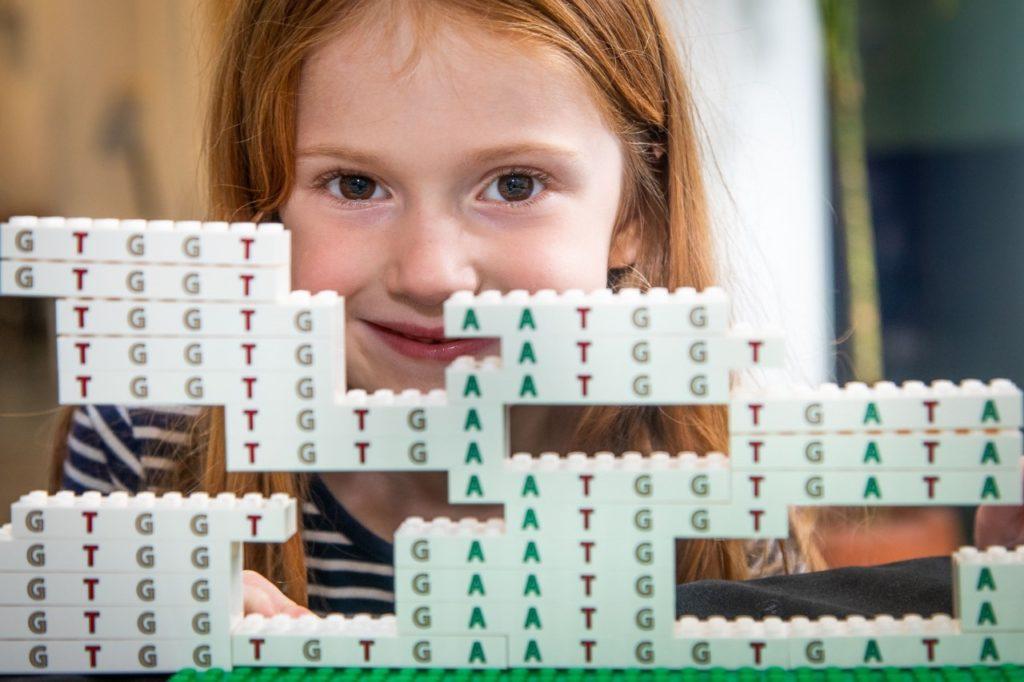Inspiring the scientists of tomorrow
On Saturday 26th October, a team of Barts Cancer Institute researchers from Professor Claude Chelala’s group took part in the NIHR Great Ormond Street Hospital (GOSH) Biomedical Research Centre (BRC) Family Fun Day. The fun-filled afternoon provides an amazing opportunity for children, young people and their families to take part in fun, educational, hands-on activities and meet researchers.
Speaking of the day, Dr Emanuela Gadaleta, a Bioinformatician in Professor Chelala’s laboratory, said:
“We are proud of our work and had a fantastic time sharing our knowledge at the GOSH BRC Family Fun Day. Children are perfect scientists. They love to explore and categorise the world around them. We want to help keep them interested by presenting science in a fun and interactive way: hopefully inspiring the scientists of tomorrow!”

Professor Chelala, Dr Gadaleta, Dr Graeme Thorn, and PhD students Ms Pauline Fourgoux and Ms Lavanya Sivapalan set up a ‘DNA Dinosaur Adventure’, where children were tasked with assembling a short sequence of dinosaur DNA using Lego bricks. The team explained the purpose of DNA and introduced lots of fun DNA facts to their young audience before children got to work on putting their own dinosaur DNA sequence together. Children of all ages (and more than a few adults!) enjoyed themselves immensely and there were soon plenty of repeat visitors at the stall. All the children received their own inflatable Tyrannosaurus Rex for their great work.
PhD student Lavanya also took part in a careers stall called ‘Do you think you want to be a scientist?’ alongside researchers from other institutions. Lavanya said:
“It was great to be a part of such an engaging activity. The aim of the stall was to encourage young people to pursue their interests in science by introducing them to real life examples of research in science and medicine today. As a cancer biologist, it was wonderful to share my own experience and to talk to so many 14-16-year-olds who were interested in tackling the challenges of cancer research.”
Public engagement is a vital skill for scientists and this is just one example of the public engagement activities that Professor Chelala and her team enjoy getting involved in. Some other examples include school visits during Science Week and running activities at community events, such as the Festival of Communities.
Category: Engagement, General News

No comments yet